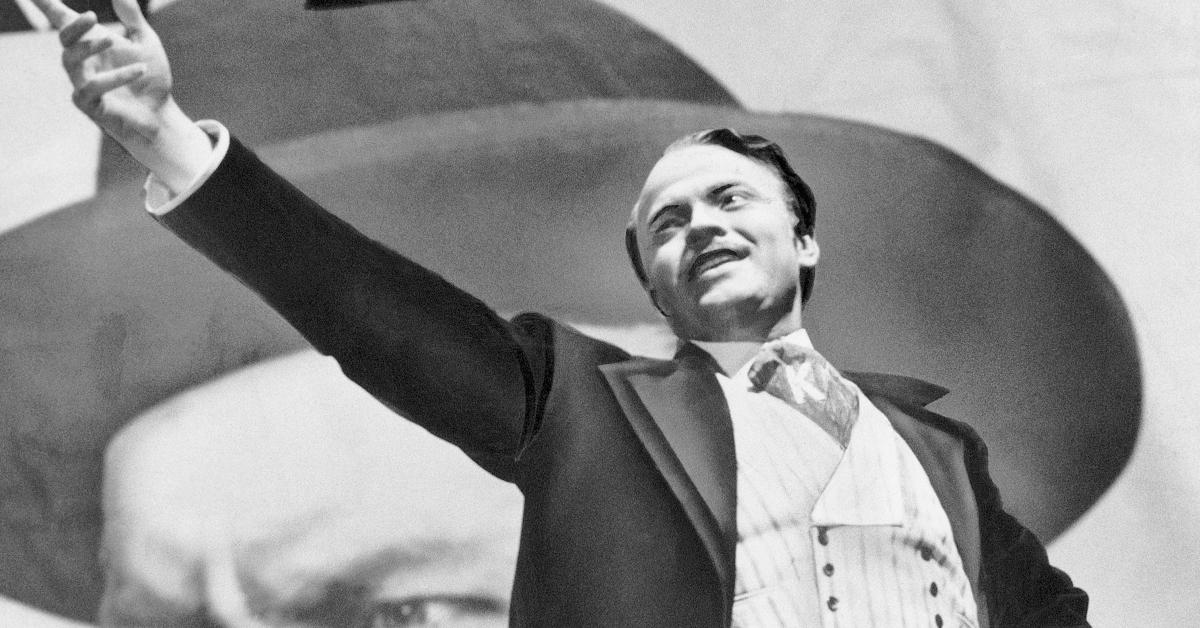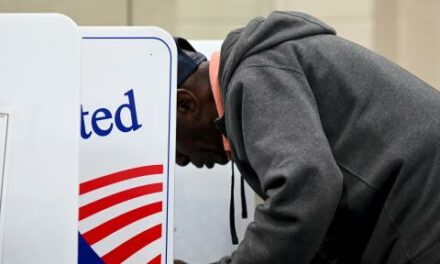We support our Publishers and Content Creators. You can view this story on their website by CLICKING HERE.

The history of American newspaper publishing is replete with examples of publishers bucking the trend their readers and reporters may have wanted. William Randolph Hearst, Colonel John McCormick and Dorothy Schiff are three examples of headstrong publishers who stamped their personal views on the papers they owned. The issue was brought to the foremost by filmmaker Orson Welles, whose epic 1941 “Citizen Kane” highlighted how publishers are political players in his thinly disguised biopic of Hearst.
Now, three major newspapers whose reporters and opinion writers have not been remotely kind to Republican presidential nominee Donald Trump – and were therefore expected to endorse Vice President Kamala Harris – have decided instead to make no endorsement for president. The decisions from the Washington Post, Los Angeles Times and USA Today have angered not only their progressive readers, but also their own employees, while giving conservatives a chance to accuse Harris of being unworthy of endorsement.
“Clearly not working”
The decisions also come at a time when trust in news media is at an all-time low, with Gallup reporting that just 31 percent of Americans have confidence that what they read or hear from mainstream journalists is accurate and fair. Those with zero trust in news media has risen to 36 percent, while it was at just 4 percent in 1976.
Jeff Bezos, the billionaire owner of The Post, seized on such data when he explained why he blocked the paper’s editorial board from endorsing Harris.
“Something we are doing is clearly not working,” he wrote in the Post’s own opinion section. “Let me give an analogy. Voting machines must meet two requirements. They must count the vote accurately, and people must believe they count the vote accurately. The second requirement is distinct from and just as important as the first. Likewise with newspapers. We must be accurate, and we must be believed to be accurate.”
The Post had about 2.5 million subscribers before the dustup, but 8 percent, or 200,000 of them canceled in protest, according to NPR. Among them was Star Wars actor Mark Hamill, a vocal critic of Trump who posted on social media that he ditched both the L.A. Times and the Post over their failure to endorse Harris.
Also, three members of the Post’s editorial board stepped down, though they did not quit their jobs. At the L.A. Times, though, at least three people left the paper after owner Patrick Soon-Shiong, a biotech billionaire who also owns a portion of the L.A. Lakers NBA team, blocked an intended endorsement of Harris.
While Soon-Shiong wasn’t specific about his reasons, his far-left daughter Nika, who has no official role at the L.A. Times, indicated that Harris is too pro-Israel to warrant an endorsement at her father’s newspaper. “Genocide is a line in the sand,” she posted on X.
It’s not known how many thousands of L.A. Times subscribers followed Hamill’s example and stopped paying for the newspaper, but the owner was practically begging readers not to leave. “I hope that they understand by not subscribing, it just adds to the demise, frankly, of democracy and the fourth estate,” he said in an interview with Spectrum News.
When resigning from the Post’s editorial board, Pulitzer Prize-winning writer David E. Hoffman wrote that “Post editorials have been a beacon of light, signaling hope to dissidents, political prisoners and the voiceless.” He added that the country faces “a very real threat of autocracy in the candidacy of Donald Trump. I find it untenable and unconscionable that we have lost our voice at this perilous moment.” Curiously, Jennifer Rubin, the token “conservative” columnist at the Post lauded those journalists who quit in protest, but has not herself resigned.
Bezos, on the other hand, was far less partisan when explaining his decision to block his editorial board from publishing their Harris endorsement.
“Most people believe the media is biased. Anyone who doesn’t see this is paying scant attention to reality, and those who fight reality lose,” Bezos wrote. “Reality is an undefeated champion. It would be easy to blame others for our long and continuing fall in credibility (and, therefore, decline in impact), but a victim mentality will not help. Complaining is not a strategy. We must work harder to control what we can control to increase our credibility.”
The decision made by USA Today isn’t garnering as much criticism as they are at the L.A. Times and the Post, possibly because the national newspaper has only ever endorsed a presidential candidate once in the four decades of its existence, that being President Joe Biden four years ago.
Not just readers
The most recent backlash is the tail end of a trend towards journalists who object vocally to decisions of their employers’ editorial decisions. This issue came to the fore when New York Times staffers took to internal Slack channels to complain about the decision to publish an Op/Ed by Sen. Tom Cotton, R-Ark., in which he suggested under the headline “Send in the Troops” in which he made the case that federal troops are needed to stamp out “anarchy” caused by the protests sweeping the United States. Cotton claimed the riots recalled “the widespread violence of the 1960s.”
Editorial editor James Bennett resigned after the Times’s union—its unit of the NewsGuild-CWA—would issue a statement calling the op-ed “a clear threat to the health and safety of the journalists we represent.” Bennett wrote an editorial for The Economist saying that “The Times’s problem has metastasised from liberal bias to illiberal bias, from an inclination to favour one side of the national debate to an impulse to shut debate down altogether. All the empathy and humility in the world will not mean much against the pressures of intolerance and tribalism without an invaluable quality that Sulzberger did not emphasise: courage.”
Meanwhile, several media analysts are weighing in, usually siding with editorial boards over owners, including two at the Poynter Institute.
“One can understand readers being upset and looking for some form of protest. The easiest is canceling their subscription to the Post. But that likely only hurts Post staffers, who are just as angry as the readers. Other than folks saying rotten things about him, the person behind the decision to not endorse — owner Jeff Bezos — isn’t going to really feel the impact of canceled subscriptions,” wrote senior media writer Tom Jones.
“No matter how many times the clarification is offered that an editorial board and the newsroom operate separately, many readers don’t see the distinction or don’t believe there is one,” wrote Rick Edmonds, Poynter’s media business analyst and leader of news transformation.
“Polarized times”
“I get that these are polarized times (though maybe not uniquely so). But the idea is to avoid offending the half or so of the audience who will be voting for Trump. Being afraid of your own readers strikes me as wishy-washy. And wishy-washy is a bad place for news outlets to be,” Edmonds wrote.
While the Post, L.A. Times and USA Today are making headlines for their non-endorsements, plenty of newspapers nationwide are endorsing; including The New York Times. Thus far, about 15 newspapers have endorsed Trump compared to about 150 for Harris, according to Wikipedia’s tracker.

 Conservative
Conservative  Search
Search Trending
Trending Current News
Current News 




